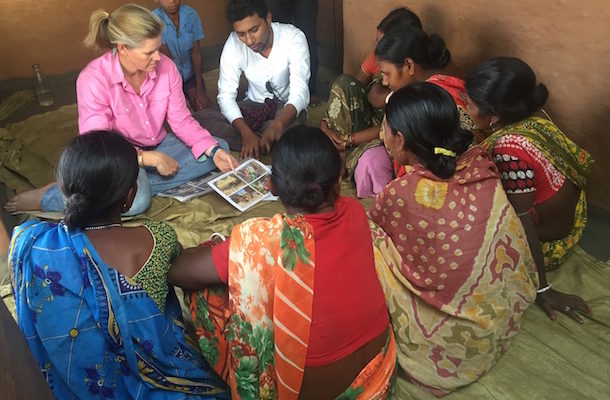Rural woman: Drivers of change, innovative thinkers and the leaders making rural communities more productive

Sunday 15 October is International Day of Rural Women and the Director of the Graham Centre for Agricultural Innovation, Professor Michael Friend says it’s a time to reflect on the important role of women in agriculture and rural communities in Australia and overseas.
In 2017 the United Nations General Assembly declared 15 October International Day of Rural Women as a day to recognise ‘the critical role and contribution of rural women, including indigenous women, in enhancing agriculture and rural development, improving food security and eradicating rural poverty.’
I am reminded of this at field days, seminars and events in my local community. Rural women are often the drivers of change, the innovative thinkers and the leaders who take on board research and development to make farms and communities more productive, profitable and sustainable. Research by Charles Sturt University (CSU) Emeritus Professor Jim Pratley in 2016 has shown that since 2003 women studying agriculture at university outnumber men and that agriculture gender percentages are now on par with the average enrolments across all areas. Rural women also play a huge role in our agriculture systems beyond the farm gate, from banking, extension, through to product development and marketing.
I also see the contribution that women scientists are making to develop knowledge and tools to set our farming systems up for the future. More than half the Graham Centre’s 43 PhD students are also women and it’s a privilege to see them develop their own research careers. Many of them are undertaking projects that will benefit rural women in Australia and overseas.
The United Nations says that women make up 43 per cent of the agricultural labour force in developing countries, responsible for producing, processing and preparing much of the food available. So it’s no surprise that when Graham Centre researchers are working in developing countries to improve the productivity and sustainability of agriculture to enhance food security, much of the focus is on engaging and empowering women. The Centre has projects in Cambodia, Vietnam, Pakistan and Laos PDR to name just a few of the countries where our scientists are working with local rural women to identify research priorities, provide information and facilitate change. Our experience has shown this delivers a social benefit too, improving the status and self-esteem of women through involvement in successful on-farm research.
One of the projects that springs to mind is a collaboration with one of our farming systems group partners, Central West Farming Systems. The aim of this project is to build conversations and connections between women farmers from two very different agricultural systems using internet-based communication tools. Last year researchers and farmers from the Central West of NSW met with women from ‘self-help groups’ in two small rural villages in West Bengal in India. As they laughed, looked at photographs and shared experiences it quickly became apparent that although they lived half a world away these rural women have far more in common than you might first think. Since then those connections have strengthened and I believe it just goes to show there is enormous value in research to build the capacity of rural women, both at home and globally. Something to think about on the International Day of Rural Women.
Professor Michael Friend is the Director of the Graham Centre for Agricultural Innovation, a research alliance between Charles Sturt University (CSU) and the NSW Department of Primary Industries (DPI). Professor Friend is an agricultural scientist with expertise in livestock production, in particular sheep production and ruminant nutrition. As Director of the Graham Centre he is committed to training the next generation of agricultural scientists to meet the skills shortage.














Alan Douglas
October 30, 2017 at 3:17 pm
I spent some of my formative years in Western Australia’s wheat belt while going to boarding school near Perth. On holidays I did notice that the women had a broader outlook than their husbands. I put that down to the fact that their hubbies spent most of their time working on the land, watching their crops, their animals and the weather. The wives had more time to think about broader issues and discuss them on the party lines we had then. Whenever they came together, the men would discuss generalised issues to do with the land and weather whilst their wives (who did not mind having a young teenager listening in) would discuss politics, art and other issues of more general interest. I felt then and feel now that farmers have to be more focussed on their own bit of land and hence more conservative than most.
New concepts like internet banking via mobile phone, new start-ups in business like buying a pig, breeding it then selling off some of the litter as is happening elsewhere seems to attract women more than men.